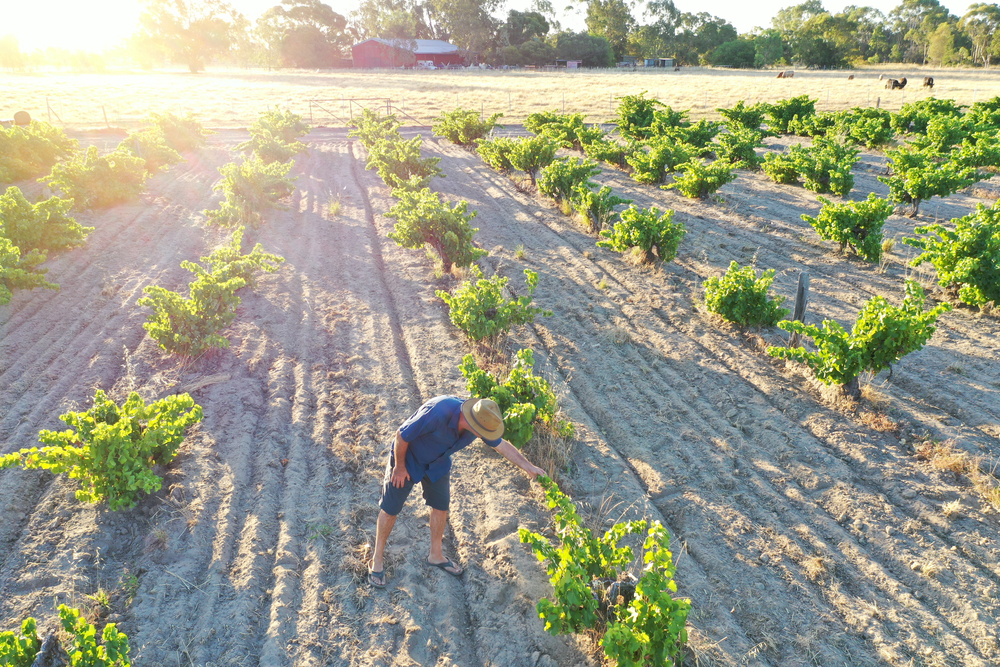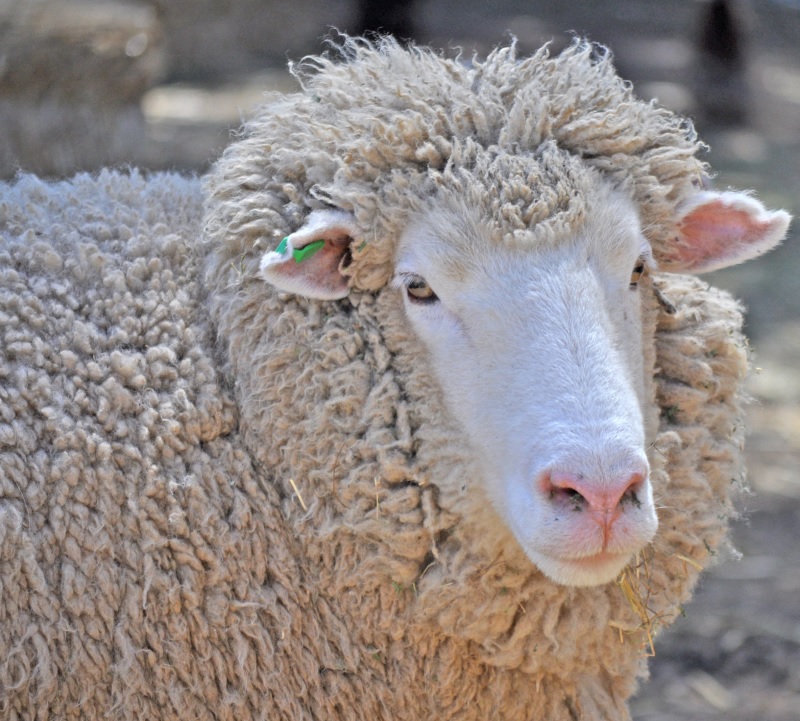The Australian Government is supporting strategic partnerships under the Australian Trade System Support—Cultivating Australia’s Agricultural Traceability—Promoting and Protecting Agriculture measure.
Collaborative industry-government partnerships between 2023 and 2026 will build trust in Australia’s safe, high quality and sustainably produced food and fibre products.
They will help develop new frameworks and test concepts to secure value-added benefits for agricultural industries and deliver improved and more efficient agricultural trade outcomes.
Activities will also support enhanced biosecurity; support the agriculture sector to act on climate change; and demonstrate sustainable agricultural practices.
AgriFutures Australia has been awarded a $480,000 grant (GST not applicable) to explore the feasibility of a national beehive traceability system in Australia and enhance the honeybee industry's preparedness for exotic bee pests.
The initiative will foster collaboration among industry stakeholders, researchers, government agencies, and biosecurity partners by promoting a cooperative and forward-thinking biosecurity approach. The project will support innovative research, development, and extension activities that align with national biosecurity objectives and the broader research agenda.
Additionally, this project supports the National Agricultural Traceability Strategy 2023 to 2033 and aligns regulatory requirements to reduce unnecessary burdens, thereby supporting market access and promoting consistent supply chain procedures.
Objectives
The objectives of the project are to:
- Build a strong collaborative research and development agenda for beehive traceability to lift our understanding of, and responses to risks and opportunities.
- Deliver a feasibility of a beehive traceability system in Australia to ensure
- readiness in the case of an exotic or endemic pest establishes,
- keeping business costs level (for monitoring, cultural practices, additional chemical use and labour),
- productivity (yield and/or colony performance), and
- market access.
- Identify current and potential beehive tracking and tracing capabilities to advance biosecurity and food safety responses, export opportunities, and confidence in Australian bee products.
- Support data standardisation to enable interoperability of beehive traceability systems, including legal considerations, consistency of location identifiers across jurisdictions for beehives, regulatory compliance and risk management.
Outcomes
The intended outcomes of the project are:
- Outcome 1: feasibility study for a bee hive traceability system that includes proof of concepts that are fit-for-purpose which may consider:
- whether a beehive traceability system is viable and what would extension to hobbyist look like
- trials/case studies of applicable systems in relevant sectors and how these may/do meet regulatory needs, and the steps taken/required for these technologies to be recognised by regulators.
- Outcome 2: review and analysis of current and potential traceability proof of concepts used in bee hives could identify any gaps or issues that need to be addressed for system uptake. This may include:
- engagement with industry and regulators to gather information on their interactions with traceability within the bee sector
- principles and governance considerations to support uptake for improved traceability compliance, facilitate adoption, and manage risks
- assessment of bee hive traceability applications with consideration to interoperability of data along the supply chain to understand barriers to uptake and opportunities for improvement.
- Outcome 3: assessment of technical, financial, and legal considerations of a traceability system which may include:
- capabilities needed to execute a bee traceability system – capacity, facility needs, materials, supply chain inputs and attitudes.
- legal considerations including legal due diligence, regulatory compliance requirements, standards for honey bee products, Beekeeping Code of Practice, standardising and decentralising data, and potential certification challenges.
Benefits
Beehive traceability aims to enhance the preparedness of the honeybee industry for exotic bee pests and diseases, provide support for international trade and protect the pollination reliant industries from the impacts of an exotic bee pest incursion.
Investment into the viability of a beehive traceability system is key to addressing:
- resilient supply chains in the face of climate change, and to respond rapidly to biosecurity incursions and broader economic shocks,
- data standardisation to enable interoperability of systems, including consistency issues of location identifiers across jurisdictions,
- enabling efficient tracing of provenance to increase trust in Brand Australia.
More information
For more information on this project please email traceability.project@aff.gov.au
$5 million (GST exclusive) has been awarded to the Food Agility Cooperative Research Centre (Food Agility CRC) to lead, and industry-government projects to test, data-enabled traceability concepts and facilitate industry and government alignment on data standards which will encourage and empower farmers to securely capture, reuse and share data.
The project, AgTrace, will address challenges identified by agriculture stakeholders on the secure collection and use of data for trade and market access. Addressing these challenges will help reduce duplication in traceability systems, aligning with the National Agricultural Traceability Strategy 2023-2033.
AgTrace features three data-enabled trials (proof of concepts) to demonstrate live, just in time data, for the red meat, horticultural and grains industries.
A key objective of this work is to encourage and empower farmers as land stewards and data owners to securely capture, reuse and share data across the supply chain, providing an efficient and cost-effective method to prove their credentials and enable market access.
The project will help drive a world leading, data enabled and integrated traceability system for Australian agriculture.
As part of the first proof of concept, Food Agility partnered with industry leaders to develop the Australian Agricultural Traceability Protocol (AATP). The protocol will create greater transparency of data shared across the supply chain to improve the accuracy, verifiability, and confidence in all aspects of environmental, social and governance reporting and accreditation.
Key features of the proof of concepts include:
- Permissions based data sharing to ensure producers maintain data sovereignty.
- Building an adaptable system which can be scaled to include other credentials in a cost and effort effective manner.
- Identifying common data points, such as geolocation, which can be utilised as trust anchors and provide assurance of credentials.
This project will benefit Australian and Indigenous producers, retailers, exporters and the economy more broadly because it addresses challenges identified by agriculture stakeholders on the secure collection and use of data for trade and market access. The project will help empower our farmers to capture value-added benefits, and reduce the time, effort and cost of trade.
Data standards consultation paper Have Your Say
The Assuring Sustainability Claims discussion paper aims to canvass stakeholder knowledge and views on current and emerging expectations from international markets with respect to the provision of evidence for sustainability claims that leverages existing data sets and addresses current and emerging market and regulatory requirements.
The paper is based on desktop research, interviews with government, industry and supply chain stakeholders, and an analysis of material sustainability topics. It also uses market information and the combined knowledge of the project team and Assuring Sustainability Claims Working Group.
We asked for your perspectives to help us assess strengths and gaps in the discussion paper, and to raise matters you felt important to bring to our attention that may have not been included or adequately discussed.
We sought views from individuals, businesses, governments, industry bodies, supply chain participants and regulators to build on this research, and help to:
- document major current and emerging international market and regulatory sustainability claims requirements
- define priority principles and common criteria for proving sustainability claims
- identify and assess ways to prove sustainability claims and to meet international market requirements.
Submissions closed at 5pm AEDT Monday 3 March 2025 and were received through an online form as well as via e-mail.
Visit Sustainability claims for international markets to read the paper and view the published responses.
For more information on this project please email credentials.innovation@aff.gov.au.
$5 million (GST exclusive) has been provided to the National Farmers’ Federation (NFF) to bring industry together to determine how to demonstrate evidence-based sustainability credentials, continue work on the Australian Agricultural Sustainability Framework (AASF), and shape international sustainability standards.
Investment in the development of the industry-led Australian Agricultural Sustainability Framework (AASF) supports evidence-based, consistent and streamlined sustainability credentials. These are key to supporting export trade and action on sustainable agriculture and climate change. The project will benefit our primary producers to understand sustainability requirements, and build Australian agriculture’s reputation locally and internationally. It will enable Australian agricultural producers and exporters to meet emerging market access requirements on sustainability to maintain and grow market access.
Objectives
The objectives of this project include to:
- Facilitate and build partnerships between government, industry and academia to define the requirements for traceability on sustainability to report against the AASF and support market access.
- Drive communication, outreach, and education with farmers, industry and domestic supply-chain companies, finance and agribusiness to build awareness and engagement with the AASF.
- Shape global standards and influence emerging market access requirements.
- Evaluate future options for measuring and demonstrating Australia’s agricultural sustainability practices.
Key outcomes from the grant
The intended outcomes of the project are:
- Increased awareness and the capacity of Australian farmers and industry to demonstrate sustainability credentials.
- Australian industry leadership on agricultural sustainability and climate action.
- Support Australian Government efforts to shape new global international sustainability standards.
Key activities
The NFF will work with industry, research organisations and governments on a range of activities, including to:
- Establish and drive an industry-government working group under the Australian Agricultural Traceability Governance Group to support demonstration of evidence-based sustainability credentials.
- Expand on previous work under Stage 1 of the AASF to identify existing sustainability data sources that could be accessed and leveraged to demonstrate Australian producers’ claims and credentials on sustainability.
- Undertake a whole-of-sector materiality environmental, social, and corporate governance (ESG) alignment assessment of the AASF with existing and developing international and domestic industry sustainability frameworks and schemes.
- Co-design, with Commonwealth Scientific and Industrial Research Organisation (CSIRO), the requirements for a sustainability data ecosystem to support alignment and interoperability (where applicable) of industry data to report against the AASF and emerging international requirements.
- Complete a pilot/s to market test and verify the AASF with private sector companies and retailers in end-to-end supply chains using the Pilot Program Methodology component from Stage 1.
- Expand engagement activities with stakeholders through the Community of Practice to build awareness and engagement with the AASF, and continue to build stakeholder buy- in on the role of traceability to demonstrate sustainable agriculture and action on climate change throughout the agriculture sector.
Intended benefits
The grant program will:
- Increase the ability of the Australian agriculture sector to demonstrate its sustainable practices to global markets, progress against our international commitments and action on climate change.
- Articulate the sustainability of Australian agriculture on a national and whole-of-sector level.
- Support efforts to shape global sustainability standards to ensure Australia’s unique growing conditions and our world-leading sustainable agriculture practices are reflected.
Have your say: Assuring Sustainability Claims discussion paper
The Assuring Sustainability Claims discussion paper sought to canvass stakeholder knowledge and views on current and emerging expectations from international markets. The focus was on the provision of evidence for sustainability claims that leverages existing data sets and addresses current and emerging market and regulatory requirements.
The paper is based on desktop research, interviews with government, industry and supply chain stakeholders, and an analysis of material sustainability topics. It also uses market information and the combined knowledge of the project team and the Assuring Sustainability Claims Working Group.
We sought views from individuals, businesses, governments, industry bodies, supply chain participants and regulators to build on this research, and help to:
- document major current and emerging international market and regulatory sustainability claims requirements
- define priority principles and common criteria for proving sustainability claims
- identify and assess ways to prove sustainability claims and to meet international market requirements.
Submissions closed 5pm AEDT Monday 3 March 2025.
You can read the paper at Sustainability claims Have your say.
Feedback received will be used to inform a final paper to be considered by the Assuring Sustainability Claims Working Group.
For more information on this project please email credentials.innovation@aff.gov.au.
The Noongar Land Enterprise (NLE) will receive $1,580,000 in grant funding to pilot the uplift of export readiness for First Nations’ businesses by using digital and paper-based traceability systems to meet export requirements and consumer demands. It will include 3 proof of concept designs to support the NLE become viable producers and exporters of honey and wattle seed products. The research and insights from this pilot will assist other First Nations businesses to become viable producers and exporters.
Objectives
The objectives of the grant are to:
- Increase opportunities and drive incentives for First Nations farmers, producers and processors to enter and grow market access for First Nations agricultural products.
- Build capacity and capability across First Nations supply chain stakeholders to meet national traceability export outcomes and comply with current and emerging market requirements and consumer demands
- Integrate First Nations and non-First Nations agricultural businesses to support Closing the Gap.
The measure seeks to support forward looking innovative ideas to create new avenues for value adding, opportunities to gain access to new markets, and enhance the overall economic benefits to industry through increasing efficiency in meeting compliance obligations.
As a part of this approach, the National Agricultural Traceability Strategy 2023 to 2033 was co-designed by industry and the Department of Agriculture, Fisheries and Forestry (the department) to align and maintain momentum with relevant stakeholders around a common vision for enhanced national agriculture traceability systems. It is export focused and covers all agricultural commodities and products, including First Nations.
Key outcomes from the grant
The intended outcomes of the pilot grant include the following:
- Product and brand development for honey and wattle seed products, including a marketing and sales strategy for export markets.
- Export preparedness – development of an international supply chain strategy and viable business model.
- Implementation and change management activities:
- An education program for this and other Indigenous businesses to establish shared understanding of traceability and credentials, including why it is needed, the benefits and opportunities, and the practical application and role of technical solutions (including to meet regulatory requirements)
- Robust training programs for all levels of staff on regulatory, technical and all other requirements
- Implementation of a viable business model for the Indigenous business and its members.
- Planning and design of infrastructure for the extraction, storage, manufacturing and packing of Indigenous agricultural products to meet export requirements.
- Review and analysis of proof of concepts for honey, wattle seed and the planning and design of infrastructure.
A $1,932,000 (GST exclusive) grant has been provided to the Indigenous Land and Sea Corporation (ILSC) to develop Australia’s first Indigenous Agricultural Product Framework.
There is growing demand for greater transparency across the supply chain and importance is being placed on provenance and credentials. Additionally, there are increasing opportunities for First Nations Australians to gain access to premium markets by proving additional attributes for their products, which will also strengthen economic and job opportunities. The development of the Indigenous Agricultural Product Framework will be guided by an overarching steering committee, comprising senior First Nations representatives from the National Indigenous Australians Agency and the ILSC, as well as from the Department of Agriculture, Fisheries and Forestry. It will define the characteristics of Indigenous agricultural products and provide an evidence base to help establish Indigenous agricultural product credentials that can verify provenance, support value-added benefits to First Nations people and secure economic benefit for domestic and exported products.
An agricultural product credential can be viewed as a provable product claim that provides assurance to consumers, governments, processors, and others regarding the presence of characteristics or attributes that cannot be easily observed.
The framework specifically benefits First Nations agriculture businesses and communities and will increase the ability of First Nations people to demonstrate product authenticity, prove world-leading practices, and protect and verify claims about attributes of their Indigenous agricultural products.
Objectives of the grant to the ILSC
The objectives of this grant to the ILSC include the following:
- Enable First Nations peoples to define ‘Indigenous agricultural product’ for the purposes of agricultural trade, recognition, and benefit.
- Clarify the benefits, gaps, industry maturity and export opportunity for Indigenous agricultural products.
- Provide key actions and governance requirements to translate the concept into recognisable Indigenous agricultural credentials.
Key outcomes from the grant
The Indigenous Agricultural Product Framework will be developed by First Nations people for First Nations people, by 2025, and will:
- Help deliver ongoing prosperity for First Nations people through premium value for both domestic and exported products, including a fairer return across the supply chain.
- Increase opportunities for specialist farmers, producers and processors to enter export markets, especially those involved in exporting boutique premium products.
- Help deliver ongoing respect, recognition and growth to all First Nations people and communities, through jobs and employment.
Key activities
The ILSC will work closely with stakeholders across Australia to develop the framework, and has engaged the National Farmers’ Federation to assist in its project delivery. Key activities include, but are not limited to:
- Consultation and engagement activities with government and Indigenous industry stakeholders, business and communities to define what characteristics must be captured to define an Indigenous product. It will also identify products currently produced for the domestic and export markets and the regulatory environment they operate under.
- Consolidation of knowledge and reporting on current issues and barriers to regulatory compliance in the domestic and export markets, as well as the potential economic and community benefits of identifying and promoting Indigenous products.
- Analysis and recommendations on premium value opportunities and the economic impact on Indigenous businesses to uptake credentials. This includes providing recommendations on the availability or potential of existing traceability technology solutions.
- Development of tangible recommendations to meet requirements of interoperability of information across Indigenous supply chains, uptake of Indigenous credentials and what support the government can provide to uplift traceability maturity.
- Development of a draft Indigenous Agricultural Product Framework.
Intended benefits
The grant program will:
- Increase the ability of First Nations people to demonstrate authenticity and protect claims about attributes of Indigenous agricultural products.
- Provide economic benefit through increased market access and value adding for domestic and exported Indigenous products.
- Support the protection and appropriate use of the Indigenous knowledges and cultural intellectual property, the National Agreement on Closing the Gap through priority reforms, and targets and outcomes for economic development.
- Complement broader international trade requirements, such as sustainability and other product credentials.
Supporting First Nations Australians to own and benefit from the cultivation and sale of traditional agricultural products ensures First Nations agricultural practices are recognised and valued within sustainable practices.
The ILSC’s funded research will support the agriculture sector’s capabilities for inclusive and equitable reporting against multiple sustainability frameworks and emerging international credential requirements and standards.
For more information on the Indigenous Agricultural Product Framework grant, please email traceability.project@aff.gov.au
$782,900 (GST exclusive) has been awarded to the Export Council of Australia (ECA) to provide international trading partners with awareness and understanding of Australia’s initiatives, goals and practices in agricultural traceability and encourage alignment of their traceability efforts with Australia.
Objectives
The objectives of this project are to:
- Enhance Australia’s reputation as a provider of safe, high quality and sustainably produced food and fibre
- Enhance Australia’s reputation for, and promote its leadership in, food and agriculture traceability
- Increase awareness of and urge commonality in approaches to traceability across Australia’s agricultural industries and throughout Australia’s key trading partners
- Encourage champions in developing country trading partners, highlighting the merits in adopting traceability, including in providing new commercial opportunities for Australian small and medium enterprises.
Key outcomes from the grant
The intended outcomes of the project are to:
- Improve trading partner knowledge of Australian approaches, standards and technologies in relation to traceability
- Encourage other economies to adopt traceability strategies by providing commercial opportunities for small and medium enterprises.
Key activities
The ECA will hold events in 2023 and 2024 within Asia, Europe, the Middle East, United States of America and Australia to demonstrate Australia’s word-leading traceability of food and agricultural products. This includes supporting small and medium enterprises to travel to these events and showcase our systems and products.
Intended benefits
The events will:
- Demonstrate Australia’s world-leading agricultural traceability of food and agricultural products
- Build further trust with high quality, safe and sustainably produced Australian food and fibre products
- Support information exchanges between Australian small and medium enterprises and key markets about Australian systems, food and fibre products
- Support increased market access with key trading partners.
This project will enhance Australia’s reputation as a leader in agricultural traceability, ensuring Australian agricultural exporters can retain and expand exports to high-value agricultural markets. The project will also contribute to strengthening national and international collaboration and partnerships on traceability to protect Brand Australia, influence international trends, and demonstrate our world class systems.
For more information on this project please email traceability.project@aff.gov.au
A $250,000 (GST exclusive) grant has been provided to Sheep Producers Australia (SPA) and Goat Industry Council Australia (GICA) to assist the Sheep and Goat Traceability Task Force (SGTTF) to provide national communication and engagement activities to support the implementation of electronic identification (eID) for sheep and goats.
This project will enable the SGTTF to communicate and collaborate better with all producers, industry and the supply chain on the enhancement to traceability that eID offers. Project activities will help to showcase the changes to management industry will be required to implement.
For more information on this project please email traceability.project@aff.gov.au






